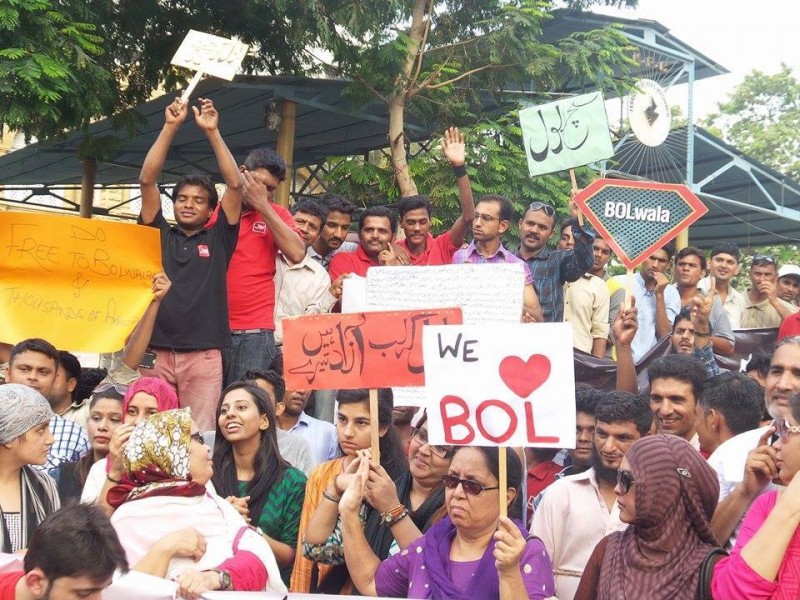
Arrests, protests, raids….so much has been happening around BOL Network, a brand new, well-financed Pakistani media outlet that gave co-ownership to journalists and threatened to shake up the media scene in Pakistan.
Thousands of Pakistani journalists working for BOL have been demonstrating in Karachi, Islamabad and Lahore on a daily basis, but coverage of their protests by other media has been scant. Their demands are simple: to stop violations of their rights and allow them to launch the much-hyped and controversial BOL television channel.
Pressure on BOL began on May 18, 2015, when a story broke on the front page of the New York Times titled, ‘Fake Diplomas, Real Cash: Pakistani Company Axact Reaps Millions.’
The story, written by NYT Pakistan Bureau Chief Declan Walsh, stated that Pakistani software company Axact — the parent company of BOL — has been making millions of dollars from a fake degree scam. A government investigation swiftly followed but protesting journalists say the state and rival media outlets are using the Axact scam as a pretext to target BOL.
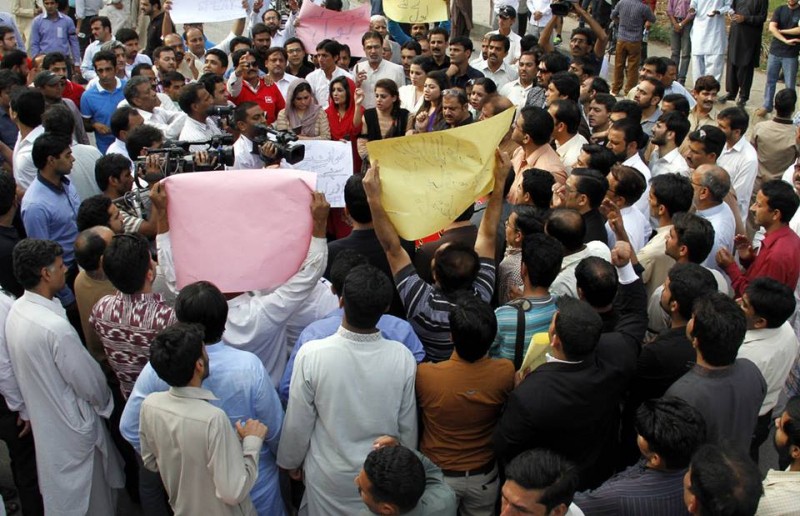
The Federal Investigation Agency (FIA), is due to present its investigative report within 17 days, while a criminal case has already been registered against Axact Chairman and CEO Shoaib Ahmed Shaikh, Vice Chairman and COO Viqas Atiq and five other directors after FIA officials claimed to have recovered a huge number of university degrees and other documents.
BOL journalists Kamran Khan, Azhar Abbas, Iftikhar Ahmad and Asma Shirazi walked away from the network soon after the Axact scam surfaced, and were strongly criticised by the The Pakistan Federal Union of Journalists (PFUJ).
The PFUJ said they had left the channel during a moment of crisis and passed a resolution during a meeting on Saturday proposing that they should not receive other posts in Pakistani media.
But not all journalists agreed with PFUJ's response. Senior journalist Talat Hussain believes the scandal has raised serious concerns about media accountability in Pakistan, while another well-recognised journalist Quatrina Hosain wants BOL to demonstrate its funding sources are clean before it enters the local media industry:
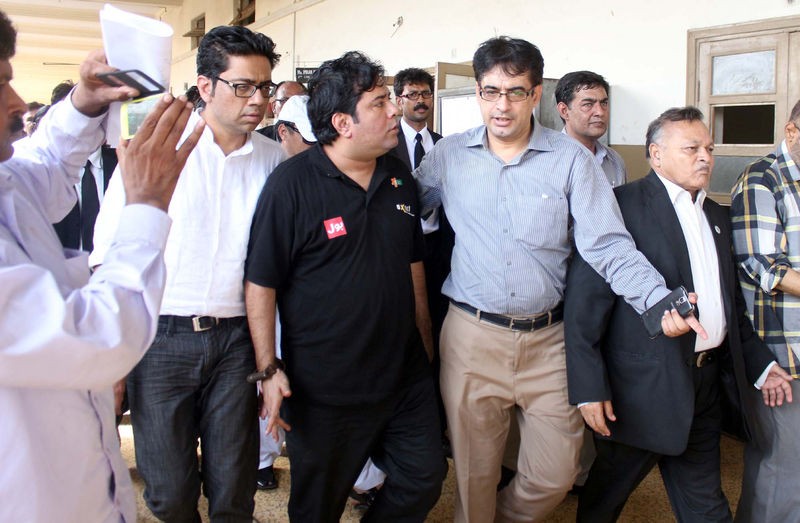
The Pakistan Electronic Media Regulatory Authority (PEMRA) under the government has already suspended a test transmission of BOL's channel. Customs officials on Friday collected records from equipment and gadgets at the BOL television office in Karachi.
As BOL comes under ever-greater scrutiny, the fate of more than two thousand journalists, technicians and support staff remains unknown. Shoaib Ahmed Shaikh and Viqas Atiq, also the CEO and COO of the BOL Network, are being held by the FIA until June 4.
Under the supervision of veteran journalists Nazir Leghari, Amir Zia and Mushtaq Minhas, BOL employees protest, stage sit-ins daily in front of the Karachi Press Club and chant slogans for rights and job security. Nevertheless, they have received no assurances so far.
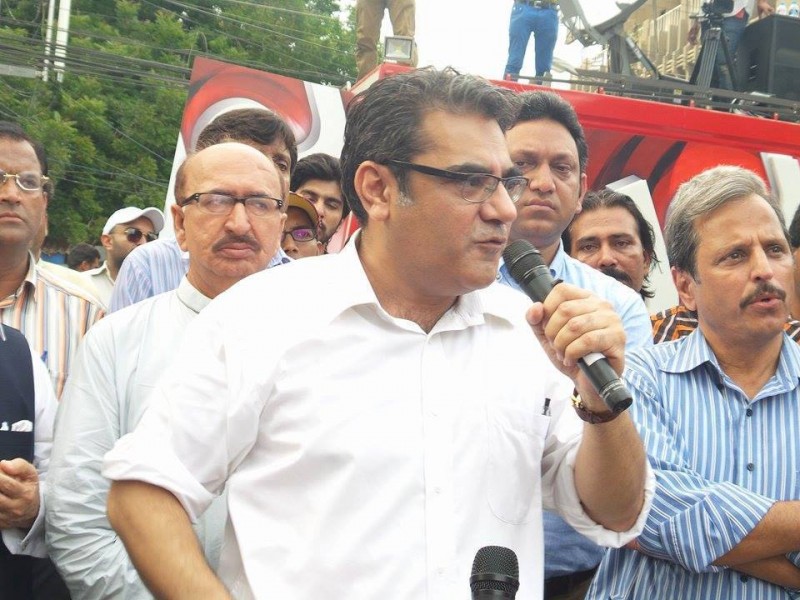
Amir Zia, a leading BOL Network journalist, is spearheading the social media campaign #BolKoBolnayDo, which blames the federal government for fuelling a media war:
Amir Jahangir, a media professional and founder of the Agahi Awards that encourages independent journalism in Pakistan, has questions about the future of thousands of BOL employees.
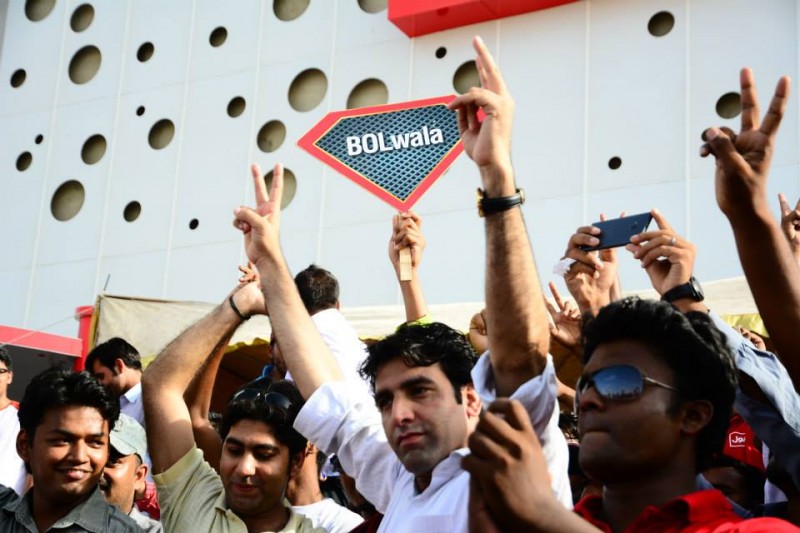
Several political parties and people from the Pakistani media industry have joined their heads to show support for the upcoming channel and BOL's employees, amid signs that the channel is losing its battle for survival. Amir Zia tweets:
This article by Sana Jamil originally appeared on Global Voices on June 1, 2015.